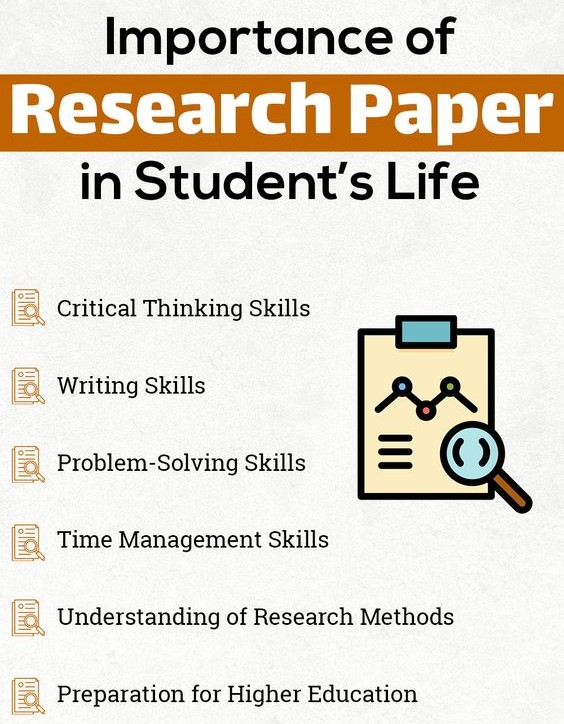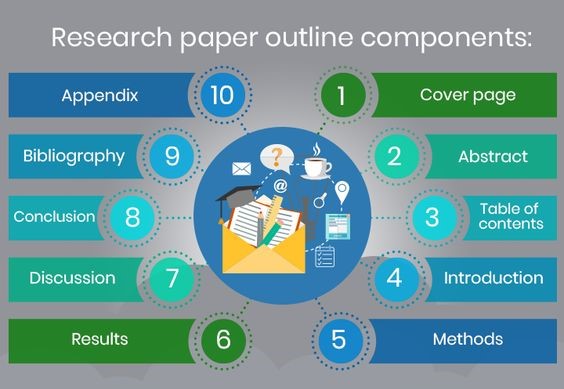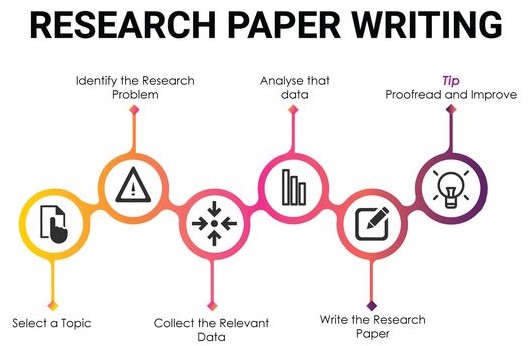
Table of Contents
Nursing research is a crucial element in advancing the profession and improving patient care. However, crafting a compelling and effective research paper can be a daunting task. Numerous pitfalls can derail even the most promising study, leading to wasted effort and a lack of impact.
This article will delve into ten common mistakes made in nursing research paper writing and provide practical guidance on how to avoid them. It will also provide strategies to help you ensure seamless nursing research paper writing.
What is a Research Paper?
A research paper is a formal academic document that presents the results of an in-depth investigation into a specific topic. It involves:
1. Identifying a research question: The paper starts with a clear question or problem the researcher aims to explore.
2. Gathering and analyzing information: This can involve various methods like experiments, surveys, interviews, or analyzing existing data.
3. Presenting findings: The paper summarizes the key findings of the research, including supporting evidence.
4. Discussing implications: The author interprets the results and their significance, considering existing knowledge and contributing to the broader field of study.

Key Characteristics of a Research Paper:
- Rigorous Methodology: Research papers must be conducted using established research methods to ensure reliability and validity.
- Evidence-Based: Every claim made in the paper should be backed up by solid evidence from credible sources.
- Objectivity: Authors should strive to present information impartially and avoid bias.
- Clarity and Coherence: The paper should be well-organized, with clear headings, subheadings, and a logical flow of information.
- Proper Citation: All sources used in the paper must be accurately cited to give credit to the original authors and avoid plagiarism.
Types of Research Papers:
Nursing research paper writing can take several forms, mainly depending on the specifics of the assignment. The following are the main types of research papers that you may be asked to write in school.
- Empirical: Based on original data collected through experiments, surveys, or observations.
- Literature Review: Analyzes and synthesizes existing research on a topic.
- Theoretical: Explores a specific theory or concept in detail.
- Case Study: Focuses on a specific individual, group, or situation.
The Structure of a Research Paper:
Like other academic papers, nursing research paper writing also takes a formal approach, with a particular format that must be followed.
- Abstract: A brief summary of the paper’s content.
- Introduction: Introduces the topic, provides background information, and states the research question.
- Literature Review: Discusses relevant existing research on the topic.
- Methodology: Explains the methods used to conduct the research.
- Results: Presents the findings of the research in a clear and concise manner.
- Discussion: Interprets the results and discusses their implications.
- Conclusion: Summarizes the key findings and reiterates the significance of the research.
- References: Lists all sources cited in the paper.

In short, a research paper is a formal and scholarly document that presents the results of a thorough investigation, contributing to the body of knowledge on a particular subject.
The Common Pitfalls in Nursing Research Paper Writing and How to Avoid Them
1. Lack of a Clear Research Question:
A well-defined research question is the cornerstone of any successful study. It acts as a guiding light, directing the entire research process. Without a clear focus, the research becomes fragmented and lacks direction.
How to Avoid:
- Begin with a broad topic: Start by identifying a general area of interest within nursing practice.
- Refine the focus: Narrow down the topic to a specific and manageable question.
- Use the PICO format: Formulate your research question using the PICO format (Population, Intervention, Comparison, Outcome) to ensure clarity and structure.
- Consider feasibility: Ensure your research question can be realistically answered within the limitations of your resources and timeframe.
2. Inadequate Literature Review:
A comprehensive and critical literature review is essential for understanding the existing knowledge base, identifying gaps, and justifying the need for your research. A weak review can undermine the credibility of your study and lead to flawed conclusions during nursing research paper writing.

How to Avoid:
- Use reputable databases: Utilize databases like PubMed, CINAHL, and Cochrane Library to search for relevant and high-quality research articles.
- Define search terms: Develop precise keywords to refine your search and identify relevant studies.
- Critically analyze sources: Evaluate the quality, methodology, and findings of each source to determine its reliability and relevance.
- Synthesize findings: Summarize and critically analyze the existing literature to identify trends, gaps, and conflicting findings.
3. Weak Research Design and Methodology:
Nursing research paper writing also requires you to explain the research design and methodology applied in the study. The research design and methodology determine the rigor and validity of your study. A flawed design can lead to biased results and undermine the conclusions drawn from your data.
How to Avoid:
- Choose the appropriate design: Select a research design that best aligns with your research question and objectives (e.g., quantitative, qualitative, mixed methods).
- Define variables clearly: Specify the independent and dependent variables and their operational definitions.
- Utilize appropriate sampling techniques: Choose a sampling method that ensures representativeness and generalizability of your findings.
- Apply rigorous data collection methods: Employ validated tools and ensure reliability and validity in data collection.
4. Insufficient Sample Size:
An inadequate sample size can weaken the statistical power of your study, making it difficult to draw meaningful conclusions.
How to Avoid:
- Perform a power analysis: Conduct a power analysis to determine the minimum sample size required for your study to achieve statistical significance.
- Consider effect size: Take into account the expected effect size of your intervention or research question.
- Account for attrition: Anticipate potential dropouts and adjust your sample size accordingly.
- Ensure adequate data points: Collect sufficient data from each participant to ensure meaningful analysis.
5. Biased Data Analysis:
Data analysis is a crucial step in nursing research paper writing. Unbiased and rigorous analysis ensures that the findings are accurate and reliable.
How to Avoid:
- Use appropriate statistical techniques: Select statistical tests that align with your research design and data type.
- Avoid cherry-picking data: Report all relevant findings, even if they do not support your hypothesis.
- Use blind analysis: When possible, perform data analysis by someone blinded to the study’s hypotheses to minimize bias.
- Transparency in reporting: Clearly describe all data analysis methods and procedures used in your paper.

6. Overlooking Ethical Considerations:
Ethical principles are paramount in nursing research paper writing and must be adhered to throughout the research process. Violations can lead to serious consequences for the researcher and participants.
How to Avoid:
- Obtain informed consent: Ensure participants fully understand the study’s risks and benefits before they agree to participate.
- Protect participant privacy: Maintain confidentiality and anonymity of all participant data.
- Address potential risks and benefits: Thoroughly consider and mitigate potential risks to participants.
- Seek ethical review: Obtain ethical approval from an Institutional Review Board (IRB) before initiating your study.
7. Weak Interpretation and Discussion:
Interpreting the results of your study is crucial for extracting meaningful insights and connecting them to existing knowledge. A weak discussion can diminish the impact of your findings.
How to Avoid:
- Relate findings to research question: Explain how your results answer the research question and support or refute your hypotheses.
- Discuss limitations: Acknowledge any limitations of your study and explain their potential impact on the findings.
- Connect to existing literature: Integrate your findings with previous research and identify any gaps or contradictions.
- Suggest future directions: Propose recommendations for future research based on your findings and limitations.
8. Ignoring Formatting and Style Guidelines:
Adhering to the formatting and style guidelines of your target journal is crucial for ensuring your paper is accepted for publication.
How to Avoid:
- Familiarize yourself with journal guidelines: Review the specific formatting, style, and citation requirements of your target journal.
- Use a style guide: Employ a style guide like the APA or AMA style manual to ensure consistency and accuracy in formatting.
- Proofread carefully: Thoroughly proofread your paper for grammatical errors, typos, and inconsistencies.
- Seek feedback from colleagues: Ask colleagues or mentors to review your paper for clarity, flow, and adherence to guidelines.
9. Poorly Written and Unclear Communication:
A well-written research paper should be clear, concise, and engaging. A poorly written paper can confuse readers and undermine the significance of your findings.
How to Avoid:
- Use clear and concise language: Write in a straightforward and easily understandable manner.
- Avoid jargon and technical terms: Use simple language that can be readily understood by a broad audience.
- Organize your paper logically: Follow a clear and consistent structure, with headings and subheadings to guide the reader.
- Engage the reader: Use active voice, varied sentence structure, and concise paragraphs to keep the reader engaged.
10. Neglecting the Importance of Peer Review:
Peer review is an essential part of the nursing research paper writing process. It helps to identify weaknesses, improve clarity, and enhance the quality of your work.

How to Avoid:
- Seek feedback from peers: Share your paper with colleagues or mentors and ask for constructive criticism.
- Consider reviewer suggestions: Carefully consider the feedback provided by reviewers and incorporate their suggestions to improve your paper.
- Be receptive to critiques: Embrace constructive criticism as an opportunity to strengthen your research and writing.
- Engage in peer review: Actively participate in the peer review process by reviewing the work of others.
Strategies for Seamless Nursing Research Paper Writing
Compelling nursing research paper writing requires a strategic approach. Here’s a breakdown of key strategies for ensuring seamless nursing research paper writing.
1. Start with a Strong Foundation:
- Choose a Relevant Topic: Select a nursing research paper writing topic that aligns with your interests and contributes to the field of nursing.
- Conduct Thorough Literature Review: Review existing research and identify knowledge gaps. This helps you formulate a unique research question and justify your study.
- Develop a Clear Research Question: A well-defined research question guides your study and helps you stay focused throughout the writing process.
2. Structure Your Paper for Clarity and Impact:
- Follow the Standard Format: Adhere to the required format, including sections like introduction, literature review, methodology, results, discussion, and conclusion.
- Craft a Captivating Introduction: Hook your reader with a compelling opening that highlights the importance of your research and outlines your research question.
- Present Your Findings with Precision: Use tables, figures, and concise language to present your research findings effectively.
- Provide a Thorough Discussion: Explain the significance of your findings, discuss limitations, and suggest future research directions.
3. Embrace the Art of Effective Writing:
- Write Clearly and Concisely: Use precise language, avoid jargon, and maintain a professional tone.
- Use Evidence to Support Your Claims: Back up your arguments with credible sources and data.
- Proofread and Edit Carefully: Ensure that your writing is error-free and adheres to academic writing conventions.
4. Focus on Quality Over Quantity:
- Prioritize Depth Over Breadth: It’s better to focus on a narrow research topic and delve into it deeply than to attempt to cover a broad range of issues.
- Refine Your Ideas: Continuously refine your research question and arguments throughout the writing process.
- Seek Feedback: Get feedback from peers, mentors, or faculty to improve your work.
5. The Value of Nursing Research Paper Writing:
- Nursing research paper writing is crucial for advancing nursing practice. It provides evidence-based knowledge that improves patient care and informs clinical decisions.
- Nursing research paper writing fosters critical thinking and analytical skills. It encourages nurses to question existing practices and seek innovative solutions.
- Nursing research paper writing contributes to the body of knowledge in nursing. It provides valuable insights that can inform policy decisions and shape the future of healthcare.
Writing a compelling nursing research paper requires time, dedication, and a commitment to producing high-quality work. By following these strategies, you can easily enhance your nursing research paper writing skills and deliver an outstanding piece.

Mastering the art of nursing research paper writing requires a combination of knowledge, skill, and attention to detail. By understanding and avoiding the common mistakes discussed in this article, you can increase your chances of producing a high-quality research paper that contributes to the advancement of nursing knowledge and practice. Remember to approach the process systematically, seek guidance from mentors, and embrace the power of peer review. As you navigate the labyrinth of nursing research paper writing, these insights can serve as valuable tools to ensure your research has a lasting impact on the field of nursing.
Professional Research Paper Writing Help
At PhD Nurse Writer, we are the experts that you should engage for customized research paper writing help. We offer professional academic writing help for undergraduate, Degree, Master’s and Doctoral programs. Besides research papers, we also provide customized assistance in writing nursing essays, case studies and dissertations. By choosing us, you are guaranteed original and high quality papers for academic excellence.





